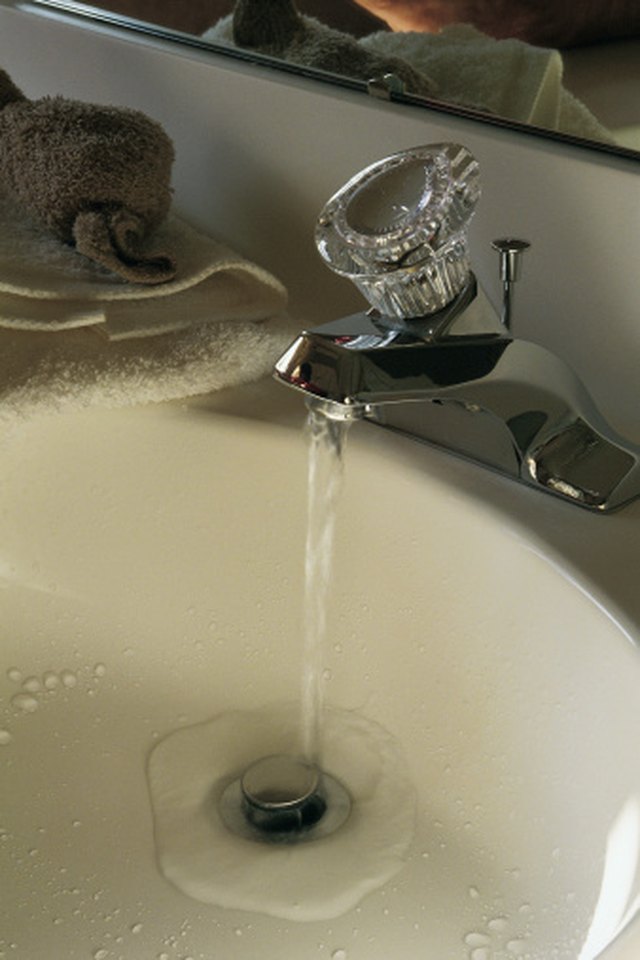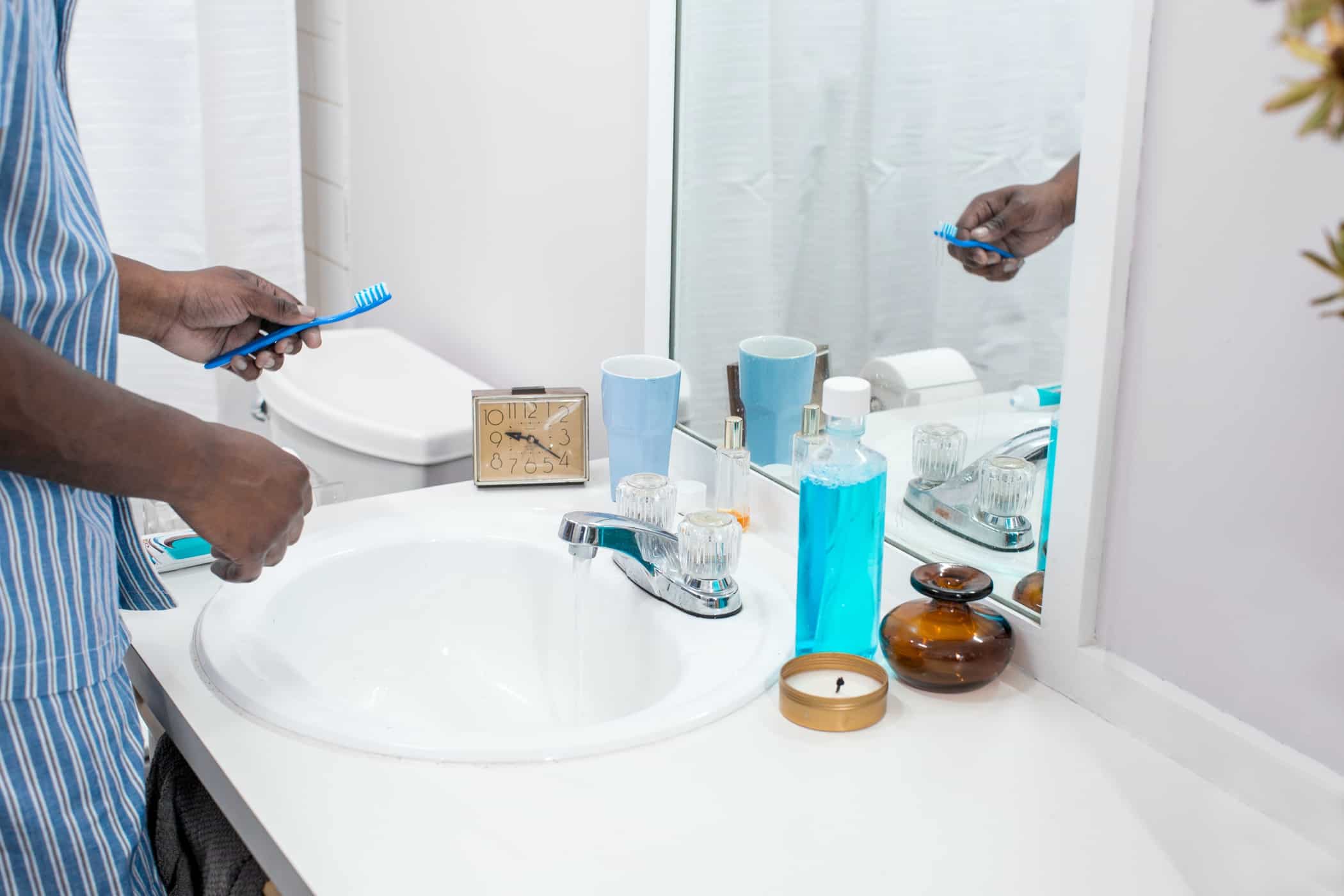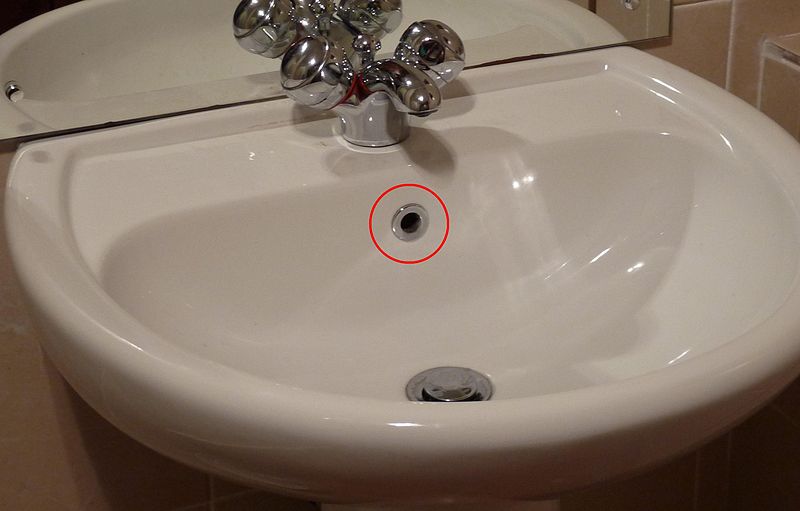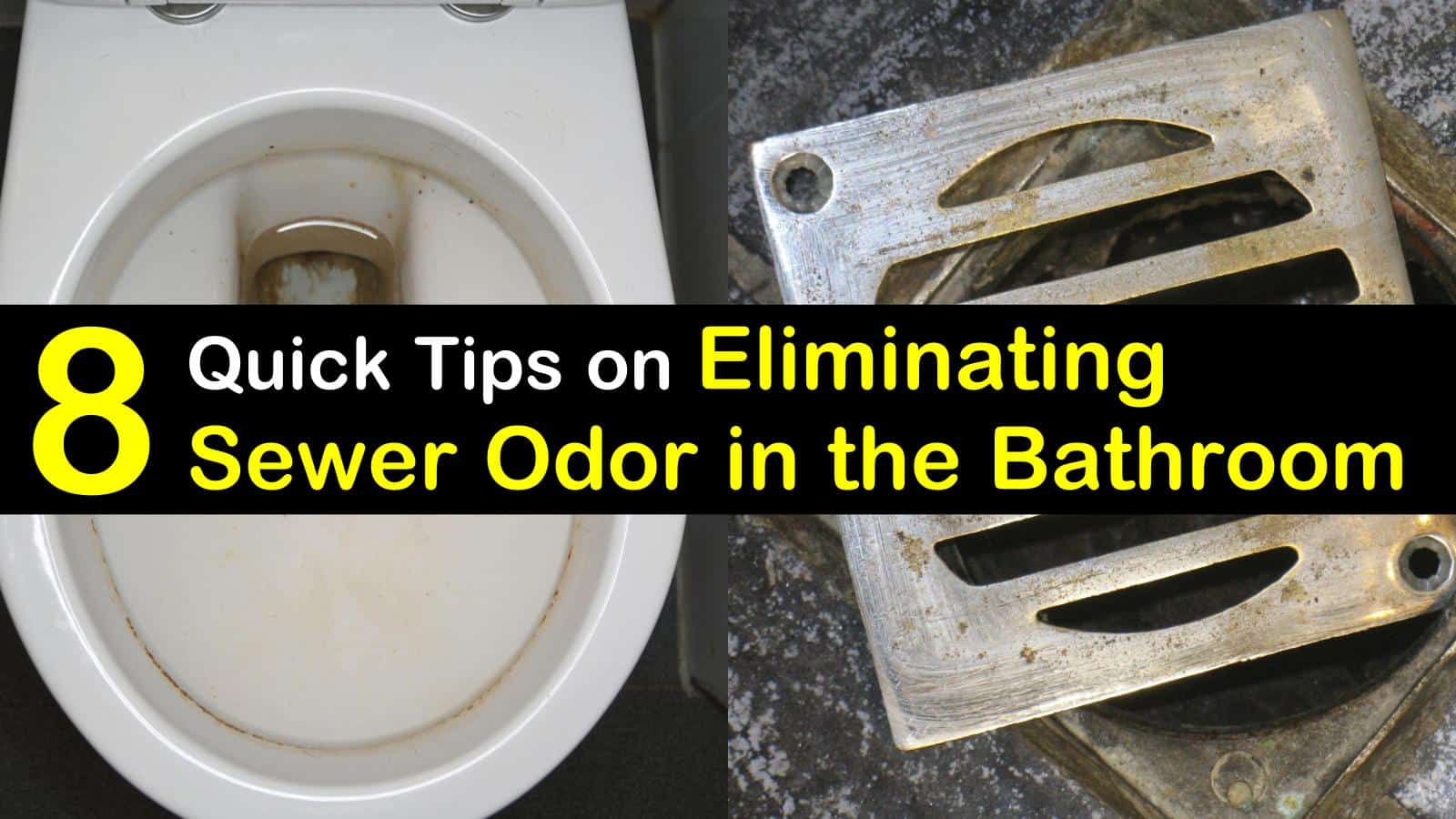What Causes That Foul Smell From Your Bathroom Sink?
The bathroom sink is a vital component of any household, facilitating daily hygiene routines. However, nothing disrupts the tranquility of a bathroom quite like an unpleasant odor emanating from the sink. Understanding the root causes of these foul smells is crucial for restoring a pleasant bathroom environment.
- Accumulation of Biofilm: Biofilm refers to a thin, slimy layer of bacteria that forms on surfaces in damp environments. Over time, biofilm can develop within the pipes and drains of a bathroom sink, leading to foul odors. This biofilm can harbor various bacteria and organic matter, contributing to the unpleasant smell.
- Trapped Debris and Organic Matter: Often, debris such as hair, soap scum, and toothpaste residue can accumulate in the drain trap or pipes beneath the bathroom sink. When left unattended, these materials can decompose, releasing foul odors into the air. Additionally, organic matter trapped in the drain can attract bacteria and other microorganisms, exacerbating the problem.
- Improper Ventilation: Inadequate ventilation in the bathroom can exacerbate foul odors from the sink. Without proper airflow, stagnant air can accumulate, allowing unpleasant smells to linger. Poor ventilation can also contribute to moisture buildup, creating an ideal environment for bacteria growth and the formation of mold and mildew.
- Sewer Gas Leaks: In some cases, foul odors from the bathroom sink may be indicative of a more serious issue, such as a sewer gas leak. Sewer gases, including methane and hydrogen sulfide, can enter the home through damaged or improperly sealed pipes. These gases have a distinctively foul odor reminiscent of rotten eggs and can pose health risks if inhaled.
- Water Quality Issues: The quality of the water flowing through the bathroom sink can also impact the presence of foul smells. Hard water, which contains high levels of minerals such as calcium and magnesium, can leave behind residues that contribute to unpleasant odors. Additionally, water with high sulfur content may impart a distinct rotten egg smell to the sink.
- Lack of Use: Surprisingly, infrequently used bathroom sinks can develop foul odors due to stagnant water in the P-trap, the curved section of pipe beneath the sink. When water sits undisturbed for extended periods, it can become stagnant and develop an unpleasant odor. Regularly running water through the sink can help prevent this issue.

Main Reasons Behind the Unpleasant Odor
A foul smell emanating from the bathroom sink can disrupt the tranquility of any home. To effectively combat these unpleasant odors, it’s essential to understand the common culprits responsible for their occurrence. By identifying these main reasons, homeowners can take proactive steps to address the underlying issues and restore freshness to their bathrooms.
Bacterial Growth: One of the primary reasons behind foul odors from the bathroom sink is the growth of bacteria within the drain and pipes. Bacteria thrive in moist environments, making the dark and damp conditions of sink drains an ideal breeding ground. As these bacteria multiply, they produce foul-smelling gases that are released into the air, causing unpleasant odors.
Decomposing Organic Matter: Over time, organic matter such as food particles, hair, soap scum, and toothpaste residue can accumulate in the drain trap and pipes beneath the bathroom sink. When left unattended, these materials begin to decompose, emitting foul odors in the process. Regular cleaning and maintenance are essential to prevent the buildup of organic matter and subsequent odors.
Sulfur Compounds: Sulfur compounds, such as hydrogen sulfide, can give rise to a distinct rotten egg smell in the bathroom sink. These compounds are often produced by the breakdown of organic matter in the drain or by sulfur-containing minerals present in the water supply. Addressing sulfur-related odors may require water treatment or plumbing repairs to eliminate the source.
Mold and Mildew: Mold and mildew thrive in moist, humid environments, making the bathroom sink an ideal breeding ground. These fungal growths not only contribute to foul odors but can also pose health risks to occupants, particularly those with respiratory issues. Proper ventilation and regular cleaning can help prevent mold and mildew growth and mitigate associated odors.
Dry P-trap: The P-trap, a curved section of pipe beneath the sink, is designed to prevent sewer gases from entering the home by trapping water. However, if the sink is not used regularly, the water in the P-trap can evaporate, allowing sewer gases to escape into the bathroom. Simply running water through the sink periodically can prevent this issue and maintain an effective seal.
Improper Ventilation: Inadequate ventilation in the bathroom can exacerbate foul odors from the sink by allowing stagnant air to accumulate. Proper airflow helps remove moisture and odors from the space, creating a fresher and more comfortable environment. Installing exhaust fans or opening windows can improve ventilation and reduce odors in the bathroom.
Simple Steps to Combat and Prevent Bad Smells in Your Bathroom Sink
Dealing with a foul smell emanating from the bathroom sink can be both unpleasant and frustrating. Fortunately, there are several simple and effective DIY solutions that homeowners can implement to combat and prevent these odors. From regular cleaning to natural remedies, taking proactive steps can help keep your bathroom smelling fresh and clean.
Deep Cleaning: Regular cleaning of the sink, drain, and surrounding areas is essential for preventing foul odors. Use a mild detergent or baking soda solution to scrub away soap scum, toothpaste residue, and other debris that can harbor bacteria and contribute to unpleasant smells. Pay close attention to crevices and corners where grime may accumulate.
Flush with Hot Water and Vinegar: Periodically flushing the sink drain with hot water and vinegar can help break down organic matter and eliminate odors. Simply pour a mixture of equal parts hot water and vinegar down the drain, let it sit for a few minutes, then flush with more hot water. This natural solution helps dissolve buildup and disinfect the drain.
Baking Soda and Lemon Juice: Baking soda is known for its odor-absorbing properties, making it an excellent natural remedy for eliminating foul smells from the sink. Mix baking soda with lemon juice to create a paste, then apply it to the sink and drain area. Allow the mixture to sit for several minutes before rinsing with hot water. The combination of baking soda and lemon juice helps neutralize odors and freshen the sink.
Boiling Water Flush: Pouring boiling water down the sink drain can effectively dislodge and flush away accumulated debris and bacteria. Boiling water helps melt away grease and soap scum while killing odor-causing bacteria. Exercise caution when handling boiling water and ensure it is poured directly down the drain to avoid damaging the surrounding surfaces.
Use a Plunger: If the foul smell persists despite regular cleaning and flushing, there may be a blockage in the drain that requires more aggressive removal. In such cases, using a plunger can help dislodge the obstruction and restore proper drainage. Begin by filling the sink with enough water to cover the plunger’s rubber cup. Place the plunger over the drain and pump it up and down vigorously to create suction. This action can help break apart blockages and allow water to flow freely through the drain, eliminating foul odors in the process.
Replace the Drain Stopper: Over time, the drain stopper in the bathroom sink can become coated with grime and bacteria, contributing to foul odors. Remove the stopper and clean it thoroughly with a brush and detergent to remove any buildup. If the stopper is damaged or worn, consider replacing it with a new one to ensure a proper seal and prevent odors from escaping through the drain.
When to Seek Professional Help
While many foul smells from the bathroom sink can be addressed with DIY solutions, there are instances where the issue may require professional intervention. Recognizing the signs that indicate a more serious problem can help homeowners determine when it’s time to enlist the expertise of a plumber or other qualified professional. From persistent odors to plumbing leaks, certain indicators warrant prompt attention to prevent further damage and ensure a safe and healthy home environment.
Persistent Odors: If foul odors persist despite thorough cleaning and DIY remedies, it may be indicative of a more serious underlying issue. Persistent odors can signify the presence of a blockage or buildup within the drain or sewer line that requires professional attention. A plumber can conduct a thorough inspection to identify the source of the odor and recommend appropriate solutions.
Slow Drainage: A bathroom sink that drains slowly or becomes backed up frequently may indicate a clog or obstruction in the plumbing system. While minor blockages can often be cleared with DIY methods, persistent drainage issues may require professional assistance. A plumber can use specialized tools and techniques to locate and remove blockages within the pipes, restoring proper drainage and eliminating foul odors.
Water Leaks: Visible water leaks around the bathroom sink or beneath the vanity can indicate a plumbing issue that requires immediate attention. Leaking pipes can lead to moisture buildup, mold growth, and foul odors, posing potential health and safety risks to occupants. A qualified plumber can inspect the plumbing system, identify the source of the leak, and perform necessary repairs to prevent further damage.
Sewer Gas Odors: Strong odors resembling rotten eggs emanating from the bathroom sink may indicate a sewer gas leak. Sewer gases, such as methane and hydrogen sulfide, can pose health risks if inhaled and require prompt resolution. A plumber can inspect the sewer lines and plumbing vents to identify and repair any leaks or breaches that may be allowing sewer gases to enter the home.
Gurgling Sounds: Unusual gurgling or bubbling sounds coming from the bathroom sink drain may indicate a ventilation problem within the plumbing system. Gurgling noises occur when air is trapped in the pipes, disrupting the flow of water and causing odors to escape through the sink. A plumber can assess the ventilation system and make necessary adjustments to restore proper airflow and prevent odors.
Visible Mold or Mildew: The presence of mold or mildew around the bathroom sink or on nearby surfaces is a clear indication of excess moisture and poor ventilation. Mold and mildew not only contribute to foul odors but can also pose health risks to occupants, particularly those with respiratory issues. A professional mold remediation specialist can assess the extent of the mold growth, address the underlying moisture issues, and safely remove the mold to restore a healthy indoor environment.
Strategies for Keeping Your Bathroom Sink Smelling Fresh and Clean
Maintaining a fresh and clean bathroom sink is essential for creating a comfortable and inviting space in your home. By implementing long-term maintenance strategies, homeowners can prevent foul odors and keep their bathroom sinks looking and smelling their best. From regular cleaning routines to preventative measures, taking proactive steps can help preserve the functionality and aesthetics of your bathroom sink for years to come.
Cleaning Routine: Incorporate regular cleaning of the bathroom sink into your household cleaning routine to prevent the buildup of grime, soap scum, and other debris that can harbor bacteria and cause foul odors. Use a mild detergent or baking soda solution to scrub the sink basin and faucet, and drain thoroughly, paying close attention to crevices and hard-to-reach areas.
Flush the Drain Regularly: To prevent odors caused by stagnant water in the P-trap, run water through the bathroom sink regularly, even if it is not in use. This simple step helps maintain a seal in the P-trap, preventing sewer gases from entering the home and minimizing the risk of foul odors. Consider pouring a cup of hot water down the drain periodically to flush away debris and bacteria and keep the drain flowing freely.
Use Drain Covers: Install drain covers or strainers in the bathroom sink to catch hair, soap scum, and other debris before it can accumulate in the drain and cause blockages. These inexpensive accessories help prevent clogs and make cleaning the sink easier by containing debris within the strainer. Clean the drain cover regularly to remove any buildup and ensure optimal drainage.
Practice Proper Ventilation: Ensure adequate ventilation in the bathroom to reduce moisture buildup and prevent the growth of mold and mildew, which can contribute to foul odors. Use exhaust fans or open windows during and after showering to remove excess humidity from the air. Consider installing a dehumidifier in particularly humid environments to maintain a dry and comfortable atmosphere.
Address Plumbing Issues Promptly: Address any plumbing issues or leaks in the bathroom sink promptly to prevent moisture buildup and mold growth. Inspect the plumbing system regularly for signs of leaks, corrosion, or damage, and enlist the services of a qualified plumber to perform necessary repairs. By addressing plumbing issues promptly, homeowners can prevent costly damage and maintain a healthy indoor environment.
Monitor Water Quality: Pay attention to the quality of the water flowing through the bathroom sink, as high mineral content or sulfur levels can contribute to foul odors. Consider installing a water filtration system or water softener to improve water quality and reduce the buildup of mineral deposits in the sink and plumbing fixtures. Regularly test the water for contaminants and address any issues promptly to ensure clean and odor-free water.
How To Get Rid Of The Sewer Smell From A Bathroom Terryu0027s Plumbing
Why Does My Bathroom Sink Smell? [And What To Do About It] – Home
How To Get Rid Of Sink Odor-Easy Tutorial For A Stinky Sink
How to Clean Stinky Drains: 7 Non-Toxic Solutions – Housewife How-Tos
How to Clean a Stinky Sink Drain – Home Repair Tutor
Why Is There a Sewage Smell in Your Bathroom? HowStuffWorks
Sewer Smell in Bathroom? – Solved! – Bob Vila
How to Get Rid of Sewer Smell in the Bathroom – 8 Quick Tips on
How to Clean a Stinky Sink Drain — by Home Repair Tutor
Related Posts:
- White Glass Bathroom Sink
- Duravit Vessel Bathroom Sinks
- Bathroom Sink Drain Repair Kit
- Cast Iron Bathroom Sinks Undermount
- How Much Does A Bathroom Sink Cost
- Cost To Install Bathroom Sink Faucet
- Bathroom Sink Drain Components
- Bathroom Sink Oval Bowl
- Satin Nickel Bathroom Sink Faucets
- Slow Bathroom Sink Drain Home Remedy











